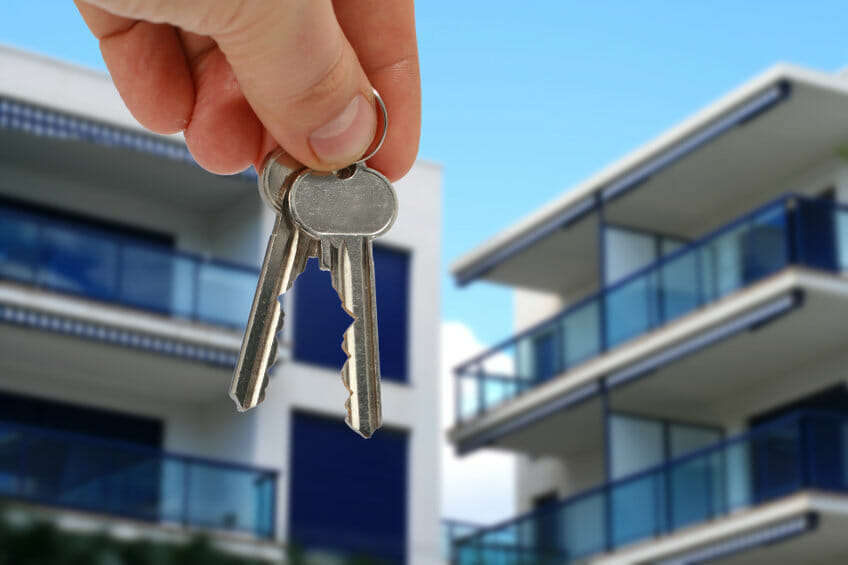Have you ever watched someone making a poor decision and wondered how they’ve made it this far in life?
We all make mistakes that we’ll readily admit to. However, there are checks and balances that we can put in place to ensure good decisions in the areas that matter. Where we live and how we manage our budget, for example, are important elements that we have complete control over.
With this in mind, we’re taking a closer look at some common apartment renting errors that we can identify and side-step to ensure that we’re making smart decisions.
If you’re shopping for an apartment, then read on for some sound advice.
1. Comparing Apartment Costs
If this is your first apartment, it’s easy to fall in love with a place that falls within your budget and ignore everything else. Your monthly rental is one of the costs that you must factor in. Others include:
• Additional (hidden) costs like off-street parking or security
• Commuting distance to work and transportation costs
• Deposits for rent and utilities
• The proximity of amenities that matter to you
Start your apartment shopping with a clear budget and a checklist. That way you know exactly what your financial obligations are and there are no surprises. If you have a few options for apartments that fit the bill on paper, then run through your checklist to compare the final effect on your pocket.
2. Rental Agreement Details
No, reading a dozen pages of “legalese” isn’t anyone’s idea of fun. However, when it comes to your rental agreement, you must take the time to read it carefully.
Take special note of the rental amount, what it includes (and excludes!), and when it’s due. Check the penalties for late payments, whether or not parking is included, and their policy on pets, visitors, and noise levels. Confirm what recourse you have if things aren’t managed properly, or you have problems with neighbors.
Some smart landlords make use of software that allows you to complete an online rental application that streamlines this, often, verbose process. This is an area where transparency and user-friendly systems are most welcome!
3. Condition of Apartments
The devil is in the detail, they say. When you’re in the market for a place to call home, you’re likely concerned about the overall condition of the apartment.
Take careful note of the condition of the building itself. Has it been well maintained? Are the common areas such as the gardens or laundry in good repair?
Does the inside of the apartment show signs of pests or neglect? Is there evidence of dampness or mold that could become a problem down the line?
Ultimately, when you’re choosing an apartment, you’re also choosing a landlord. These are the people that hold the key—pun intended—to your future happiness within that unit.
4. Location Check
The apartment is a good size, the finishes are immaculate, and they’ll allow you to bring your cats. Perfect! Before you sign on the dotted line though, check out the neighborhood.
Nothing will ruin a chilled evening at home like the sound of gunshots or a domestic dispute outside your bedroom window. Do your due diligence and make sure that your surroundings are safe, your neighbors are decent, and there are no nasty surprises lurking after dark.
5. A Personal Visit
While the idea of signing a rental agreement on a property that you haven’t seen may seem absurd to you, it happens. In fact, there are some rather smart scammers out there preying on apartment hunters just like you who are looking to secure a space in a popular area.
They ask for a deposit to secure the unit as they’ve allegedly got a long line of people waiting, and only then arrange a viewing time. By the time you (and others) arrive for your appointment, the “landlord” is long gone, along with your deposit!
Outside of scam artists and landlords that take deliberately deceptive pictures of the apartment, there are several things you’ll only know once you’ve seen the property. For example, what it smells like, how clean it is, who your immediate neighbors are, and how your furniture will fit into the space.
6. Factoring Renter’s Insurance
Your landlord is responsible for the structure of the building; walls and windows, geysers, plumbing, and electrical elements.
However, what some people forget is that their insurance will not cover their personal property within the apartment. Your moveable possessions are your sole responsibility in the event of a fire, water damage, or even a break-in.
Personal insurance is always a good idea. It’s not terribly expensive, and while it can feel like a waste of money it’s one of those things you’re super glad to have when the chips are down.
7. Get Ready to Compromise
One of the most common renting mistakes is thinking that you’re going to find Utopia. The perfect apartment simply doesn’t exist, and you will almost certainly have to make compromises.
If the location and size are ideal, it may be a little more expensive. Perhaps the size and layout are on point, but the location adds 30 minutes to your morning commute. The main bedroom is just perfect, but the second bedroom is tiny. The previous owners kept their furbabies indoors and there is a lingering odor.
On that checklist mentioned earlier, make a note of non-negotiables and another of nice-to-haves. That way you’ll be able to rein in your enthusiasm when an apartment isn’t checking all the boxes.
Avoid These Common Apartment Renting Errors
Yes, it’s hard work and a little stress, but moving into a new apartment can be incredibly exciting. Don’t let dodgy landlords, nosey neighbors, or poor space planning rob you of your joy.
Avoiding the most common apartment renting errors will help you to make sound decisions and enjoy your new space for years to come.
If you’ve enjoyed this sage advice, please feel free to scout our website for more useful real estate and lifestyle guidance.




